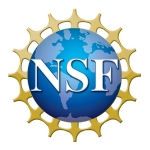National Science Foundation Awards CGHI $1.2MM Grant to Implement BACE in 5 Additional States

ATLANTA–(BUSINESS WIRE)–#NSFfunded–The Center for Global Health Innovation (CGHI) has been awarded a $1.2MM grant from the National Science Foundation (NSF) to expand the Biotechnician Assistant Credentialing Exam (BACE) in 5 states as a tool to certify an individual’s capabilities and accelerate the development of the bioscience workforce. The BACE credential was developed through engagement with industry representatives, and the exam is already on the approved lists of industry-recognized credentials for seven states and the District of Columbia. Five additional states formally adopting the BACE will increase its potential to become the industry-recognized system for entry-level biotechnicians.
This project is funded by the NSF’s Advanced Technological Education program that focuses on the education of technicians for the advanced-technology fields that drive the nation’s economy. The grant titled: Implementation of an Industry-Recognized Credentialing System (IRCS) is necessary to meet the projected increase in national workforce demand for highly skilled biotechnicians. Life science companies are often unfamiliar with the skill set of applicants. Skill set confidence can be communicated by an effective credential. Industry identifies the Biotechnician Assistant Credentialing Exam (BACE), developed by Biotility at the University of Florida, as an effective tool to convey capabilities, and the BACE holds promise of becoming the industry-recognized credentialing system for the nation.
“CGHI is proud to play a leading role in establishing the BACE as a nationally recognized credential,” said Maria Thacker-Goethe, CEO of the Center for Global Health Innovation. “This project has the potential to facilitate the transition from two-year college technician education programs to employment in the biotechnology industry. Successfully adopting the BACE would not only serve the industry, but also serve the emerging workforce by identifying skill sets in demand across the country.”
ABOUT THE CENTER FOR GLOBAL HEALTH INNOVATION (CGHI)
The Center for Global Health Innovation (CGHI) is a 501(c)(3) organization that was launched in January 2020 to bring together diverse Global Health, Health Technology and Life Sciences entities to collaborate, innovate and activate solutions to enhance human health outcomes around the world. Visit CGHI at www.innovateglobalhealth.org.
ABOUT THE NATIONAL SCIENCE FOUNDATION (NSF)
The National Science Foundation (NSF) is an independent federal agency that supports fundamental research and education across all fields of science and engineering. In fiscal year (FY) 2020, its budget is $8.3 billion. NSF funds research in all 50 states through grants to nearly 2,000 colleges, universities and other institutions. Each year, NSF receives more than 50,000 competitive proposals for funding and makes about 12,000 new funding awards.
This material is based upon work supported by the National Science Foundation Grant No. 2054895. Any opinions findings and conclusions or recommendations expressed in this material are those of the author(s) and do not necessarily reflect the views of the National Science Foundation.
Contacts
Ryan Brooks
404.920.2043
rbrooks@gabio.org

